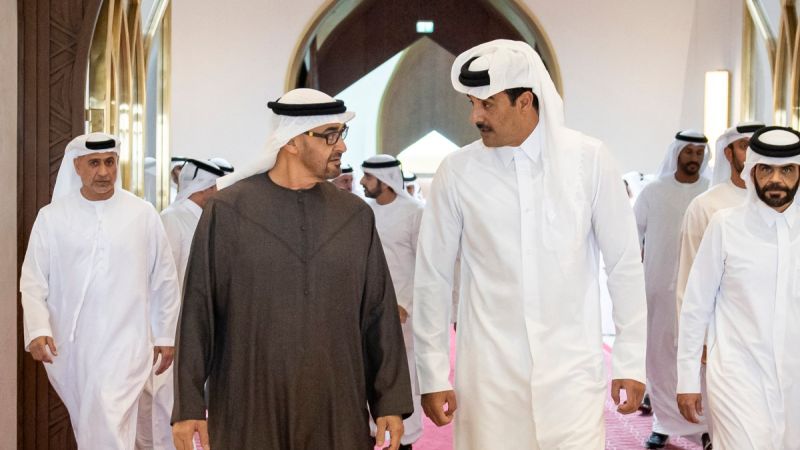Sheikh Mohammed bin Zayed Al Nahyan, President of the United Arab Emirates, has arrived in Doha on a friendly visit, marking the first visit by a head of state to Qatar since the Israeli strike on the country earlier this week.
The Emirates News Agency (WAM) reported that Sheikh Tamim bin Hamad Al Thani, Emir of Qatar, personally welcomed Sheikh Mohammed and his delegation at Doha International Airport. The two leaders are expected to hold talks on regional security, solidarity, and ways to respond to the escalating tensions.
According to Reuters, Saudi Crown Prince Mohammed bin Salman is also expected in Doha on Thursday, highlighting the growing regional support for Qatar following the incident.
First visit since Israeli strike
Sheikh Mohammed’s trip comes just days after an Israeli attack on Doha on Tuesday, 9 September, which drew widespread condemnation across the Arab world. The strike marked a serious escalation in regional hostilities and prompted calls for Arab unity in response.
In a phone call with Sheikh Tamim earlier this week, Sheikh Mohammed expressed the UAE’s “full solidarity with Qatar” and condemned what he described as a “blatant attack” on a fellow Arab nation. He also reaffirmed that the UAE stood by Qatar in all measures it takes to protect its sovereignty, security, and the safety of its people.
The visit is seen as a strong signal of Gulf cooperation, coming at a time when tensions across the Middle East remain volatile.
Symbol of Gulf unity
Regional analysts note that Sheikh Mohammed’s decision to be the first foreign leader to visit Qatar following the strike underscores the UAE’s desire to reinforce its role as a stabilising partner in the Gulf.
“Such a visit is more than diplomatic symbolism—it is an assertion of collective defence and solidarity within the GCC,” said one Gulf affairs expert. “With Saudi Arabia’s Crown Prince expected to arrive soon after, the coordination among Gulf states is becoming increasingly visible.”
Qatar, which has faced heightened regional challenges in recent years, has welcomed the show of support. Its leadership has maintained that unity among Arab states is essential in addressing regional security threats and external aggression.
Regional implications
The visits by Gulf leaders may also shape broader regional diplomacy, particularly in relation to Israel and ongoing debates around security arrangements in the Gulf. The show of solidarity with Qatar could influence future talks among GCC countries on joint defence strategies and regional coordination.
While details of the discussions between Sheikh Mohammed and Sheikh Tamim have not yet been disclosed, both leaders are expected to address not only the immediate aftermath of the strike but also wider issues of stability, cooperation, and humanitarian support.
As Qatar continues to recover from the attack, the visits from the UAE president and Saudi crown prince are likely to be closely watched as indicators of how Gulf states plan to navigate the escalating regional crisis together.

